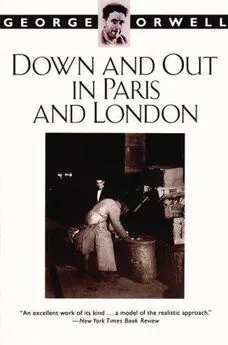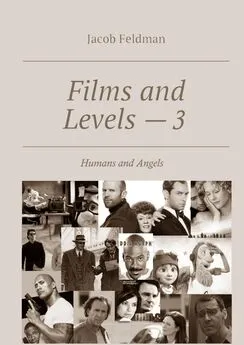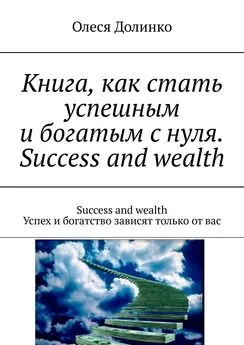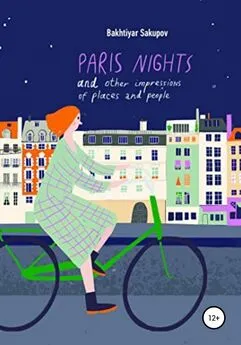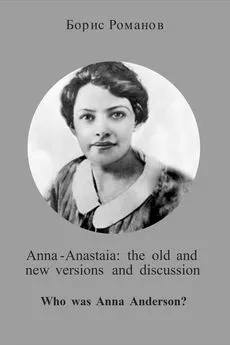George Orwell - Down and Out in Paris and London
- Название:Down and Out in Paris and London
- Автор:
- Жанр:
- Издательство:неизвестно
- Год:неизвестен
- ISBN:нет данных
- Рейтинг:
- Избранное:Добавить в избранное
-
Отзывы:
-
Ваша оценка:
George Orwell - Down and Out in Paris and London краткое содержание
Down and Out in Paris and London - читать онлайн бесплатно полную версию (весь текст целиком)
Интервал:
Закладка:
the pawnshop, a nasty, sour-faced interfering, little
man-a typical French official-refused the coats on the
ground that they were not wrapped up in anything. He
said that they must be put either in a valise or a
carboard box. This spoiled everything, for we had no
box of any kind, and with only twenty-five centimes
between us we could not buy one.
I went back and told Boris the bad news. "
Merde !" he
said, "that makes it awkward. Well, no matter, there is
always a way. We'll put the overcoats in my suitcase."
"But how are we to get the suitcase past the
patron ?
He's sitting almost in the door of the office. It's
impossible!"
"How easily you despair,
mon ami ! Where is that
English obstinacy that I have read of? Courage! We'll
manage it."
Boris thought for a little while, and then produced
another cunning plan. The essential difficulty was to
hold the
patron's attention for perhaps five seconds,
while we could slip past with the suitcase. But, as it
happened, the
patron had just one weak spot-that he was
interested in
Le Sport , and was ready to talk if you
approached him on this subject. Boris read an article
about bicycle races in an old copy of the
Petit Parisien ,
and then, when he had reconnoitred the stairs, went
down and managed to set the
patron talking. Meanwhile,
I waited at the foot of the stairs, with the overcoats
under one arm and the suitcase under the other. Boris
was to give a cough when he thought the moment
favourable. I waited trembling, for at any moment the
patron's
wife might come out of the door opposite the
office, and then the game was up. However, presently
Boris coughed. I sneaked rapidly past the office and out
into the street, rejoicing that my shoes did not creak. The
plan might have failed if Boris had been thinner, for his
big shoulders blocked the doorway of the office. His nerve
was splendid, too; he went on laughing and talking in the
most casual way, and so loud that he quite covered any
noise I made. When I was well away he came and joined
me round the corner, and we bolted.
And then, after all our trouble, the receiver at the
pawnshop again refused the overcoats. He told me (one
could see his French soul revelling in the pedantry of it)
that I had not sufficient papers of identification; my
carte
d'identité
was not enough, and I must show a passport or
addressed envelopes. Boris had addressed envelopes by
the score, but his
carte d'identité was out of order (he
never renewed it, so as to avoid the tax), so we could not
pawn the overcoats in his name. All we could do was to
trudge up to my room, get the necessary papers, and
take the coats to the pawnshop in the Boulevard Port
Royal.
I left Boris at my room and went down to the pawn-
shop. When I got there I found that it was shut and
would not open till four in the afternoon. It was now
about half-past one, and I had walked twelve kilometres
and had no food for sixty hours. Fate seemed to be
playing a series of extraordinarily unamusing jokes.
Then the luck changed as though by a miracle. I was
walking home through the Rue Broca when suddenly,
glittering on the cobbles, I saw a five-sou piece. I
pounced on it, hurried home, got our other five-sou piece
and bought a pound of potatoes. There was only enough
alcohol in the stove to parboil them, and we
had no salt, but we wolfed them, skins and all. After
that we felt like new men, and sat playing chess till the
pawnshop opened.
At four o'clock I went back to the pawnshop. I was
not hopeful, for if I had only got seventy francs before,
what could I expect for two shabby overcoats in a
cardboard suitcase? Boris had said twenty francs, but I
thought it would be ten francs, or even five. Worse yet, I
might be refused altogether, like poor
Numéro 83 on the
previous occasion. I sat on the front bench, so as not to
see people laughing when the clerk said five francs.
At last the clerk called my number: «
Numéro 117 !"
"Yes," I said, standing up.
"Fifty francs?"
It was almost as great a shock as the seventy francs
had been the time before. I believe now that the clerk
had mixed my number up with someone else's, for one
could not have sold the coats outright for fifty francs. I
hurried home and walked into my room with my hands
behind my back, saying nothing. Boris was playing with
the chessboard. He looked up eagerly.
"What did you get?" he exclaimed. "What, not twenty
francs? Surely you got ten francs, anyway?
Nom de Dieu ,
five francs-that is a bit too thick.
Mon ami , don't say it
was five francs. If you say it was five francs I shall really
begin to think of suicide."
I threw the fifty-franc note on to the table. Boris
turned white as chalk, and then, springing up, seized my
hand and gave it a grip that almost broke the bones. We
ran out, bought bread and wine, a piece of meat and
alcohol for the stove, and gorged.
After eating, Boris became more optimistic than I had
ever known him. "What did I tell you?" he said. "The
fortune of war! This morning with five sous, and
now look at us. I have always said it, there is nothing
easier to get than money. And that reminds me, I have a
friend in the Rue Fondary whom we might go and see.
He has cheated me of four thousand francs, the thief. He
is the greatest thief alive when he is sober, but it is a
curious thing, he is quite honest when he is drunk. I
should think he would be drunk by six in the evening.
Let's go and find him. Very likely he will pay up a
hundred on account.
Merde ! He might pay two hundred.
Allons y!"
We went to the Rue Fondary and found the man, and
he was drunk, but we did not get our hundred francs. As
soon as he and Boris met there was a terrible altercation
on the pavement. The other man declared that he did not
owe Boris a penny, but that on the contrary Boris owed
him
four thousand francs, and both of them kept
appealing to me for my opinion. I never understood the
rights of the matter. The two argued and argued, first in
the street, then in a bistro, then in a
prix fixe restaurant
where we went for dinner, then in another
bistro .
Finally, having called one another thieves for two hours,
they went off together on a drinking bout that finished
up the last sou of Boris's money.
Boris slept the night at the house of a cobbler,
another Russian refugee, in the Commerce quarter.
Meanwhile, I had eight francs left, and plenty of
cigarettes, and was stuffed to the eyes with food and
drink. It was a marvellous change for the better after two
bad days.
VIII
WE had now twenty-eight francs in hand, and could
start looking for work once more. Boris was still
sleeping, on some mysterious terms, at the house of the
cobbler, and he had managed to borrow another twenty
francs from a Russian friend. He had friends, mostly
exofficers like himself, here and there all over Paris.
Some were waiters or dishwashers, some drove taxis, a
few lived on women, some had managed to bring
money away from Russia and owned garages or
dancing-halls. In general, the Russian refugees in Paris
are hard-working people, and have put up with their
bad luck far better than one can imagine Englishmen
of the same class doing. There are exceptions, of
course. Boris told me of an exiled Russian duke whom
he had once met, who frequented expensive
restaurants. The duke would find out if there was a
Russian officer among the waiters, and, after he had
dined, call him in a friendly way to his table.
« Ah, » the duke would say,
"so you are an old
soldier, like myself? These are bad days, eh? Well, well,
the Russian soldier fears nothing. And what was your
regiment?"
"The so-and-so, sir," the waiter would answer.
"A very gallant regiment! I inspected them in 1912.
By the way, I have unfortunately left my notecase at
home. A Russian officer will, I know, oblige me with
three hundred francs."
If the waiter had three hundred francs he would hand
it over, and, of course, never see it again. The duke
made quite a lot in this way. Probably the waiters did
not mind being swindled. A duke is a duke, even in
exile.
It was through one of these Russian refugees that
Boris heard of something which seemed to promise
money. Two days after we had pawned the overcoats,
Boris said to me rather mysteriously:
"Tell me,
mon ami , have you any political opinions?"
"No," I said.
" Neither have I. Of course, one is always a patriot;
but still--- Did not Moses say something about spoiling
the Egyptians? As an Englishman you will have read
the Bible. What I mean is, would you object to earning
money from Communists?"
"No, of course not."
"Well, it appears that there is a Russian secret
society in Paris who might do something for us. They
are Communists; in fact they are agents for the Bol-
sheviks. They act as a friendly society, get in touch
with exiled Russians, and try to get them to turn
Bolshevik. My friend has joined their society, and he
thinks they would help us if we went to them."
"But what can they do for us? In any case they
won't help me, as I'm not a Russian."
"That is just the point. It seems that they are corre-
spondents for a Moscow paper, and they want some
articles on English politics. If we go to them at once
they may commission you to write the articles."
"Me? But I don't know anything about politics."
«
Merde ! Neither do they. Who does know anything
about politics? It's easy. All you have to do is to copy it
out of the English papers. Isn't there a Paris
Daily Mail ?
Copy it from that."
"But the
Daily Mail is a Conservative paper. They
loathe the Communists."
"Well, say the opposite of what the
Daily Mail says,
then you
can't be wrong. We mustn't throw this chance
away,
mon ami . It might mean hundreds of francs"
I did not like the idea, for the Paris police are very
hard on Communists, especially if they are foreigners,
and I was already under suspicion. Some months
before, a detective had seen me come out of the office
of a Communist weekly paper, and I had had a great
deal of trouble with the police. If they caught me going
to this secret society, it might mean deportation. However,
the chance seemed too good to be missed. That after-
noon Boris's friend, another waiter, came to take us to
the rendezvous. I cannot remember the name of the
street-it was a shabby street running south from the
Seine bank, somewhere near the Chamber of Deputies.
Boris's friend insisted on great caution. We loitered
Читать дальшеИнтервал:
Закладка:
